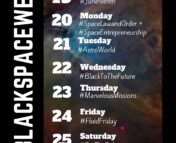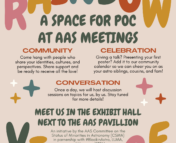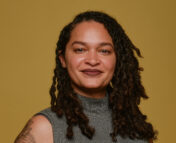This post is part of a series advertising the newly-formed Rainbow Village. The Rainbow Village is a gathering space centered in supporting, celebrating, and building community with people of color at AAS meetings. The space is designed for folks to connect with each other, share and celebrate milestones at the AAS meeting, and grow together through exploratory (“salon-style”) discussions. For a broad overview of the Rainbow Village and the organizations working to create this space, see our introduction post. Today we interview Junellie Gonzalez Quiles, Coordinator for the League of Underrepresented Minoritized Astronomers (LUMA) and PhD student at Johns Hopkins University.
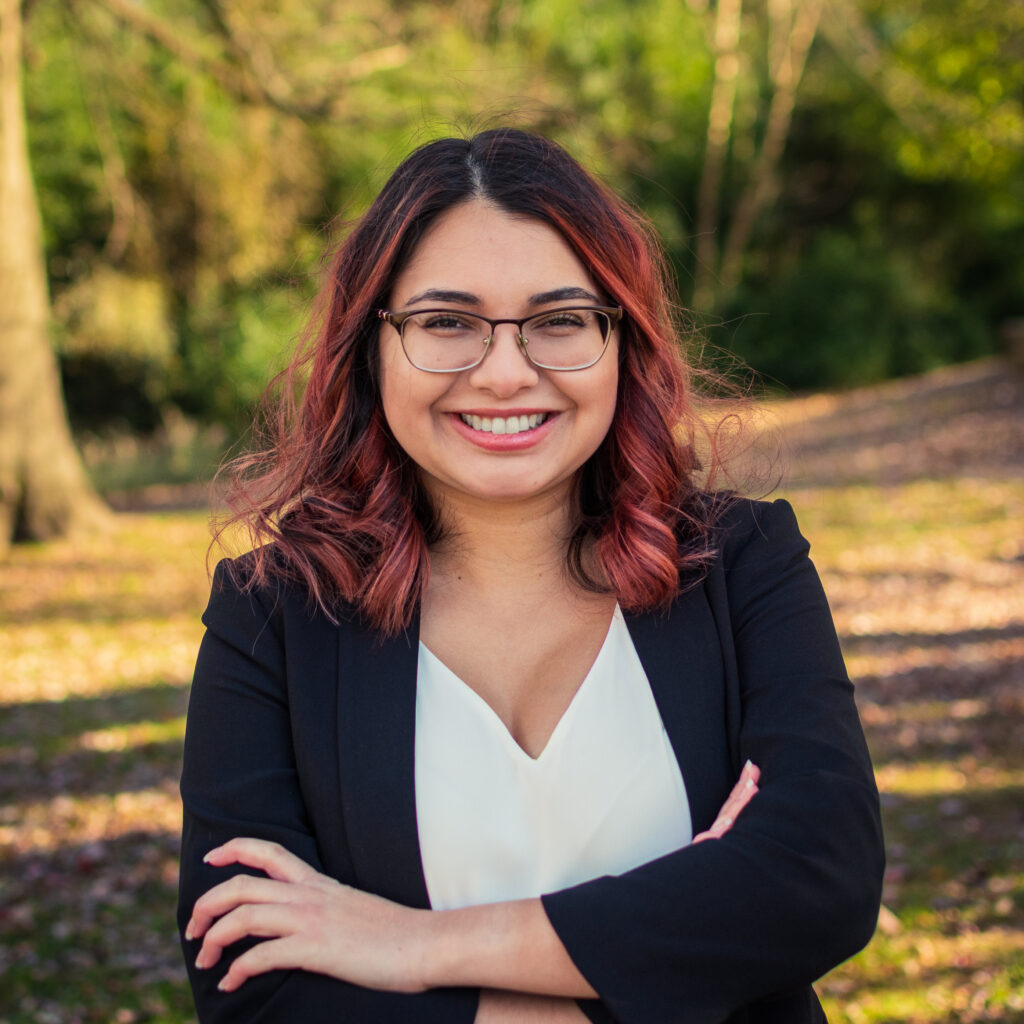
This interview has been edited for clarity.
A personal note from Junellie:
LUMA literally saved me during my graduate education. In a moment when I was struggling the most in my PhD, I found LUMA and it gave me the community I really needed to feel supported in my PhD and gave me the accountability and tools to keep making good progress towards my career goals. I am so grateful for those people who have come before me and have built and provided these kinds of spaces for current and future generations to thrive in their careers. I hope that by starting the Rainbow Village at AAS, more people of color can thrive and remain in the field by creating a more inclusive environment for all to participate in.
What is LUMA’s mission?
The League of Underrepresented Minoritized Astronomers, also known as LUMA, was founded in 2015 by Prof. Catherine Espaillat at Boston University. LUMA’s goal is to provide a safe and supportive virtual community where Black, Indigenous and Latinx women in astronomy, physics and related fields can belong and shine. It is a virtual peer mentoring community where members, also referred to as LUMA-lites, can “choose their own adventure” and can opt in to whatever LUMA programming best fits their needs.
Who makes up LUMA?
LUMA is composed of Black, Indigenous and Latinx women in astronomy, physics and related fields who are graduate students, postdoctoral researchers, faculty, and research scientists. We have over 100 members spanning 5 countries and 63 organizations over 8 years (and counting!).
What is your role within LUMA?
I am currently the Coordinator for LUMA and I help run, coordinate and organize LUMA programming over the year and prepare semesterly evaluation reports (programming described in next question). I also am in charge of recruiting new members at conferences like the AAS meetings, managing membership and making sure our members are supported in every step of their career. Together with Assistant Coordinator, Sabrina Khan, I help create promotional materials for social media as well as manage website and social media accounts for the organization.
What sort of things can LUMA members participate in/benefit from?
LUMA programming includes but is not limited to the LUMA buddy system, accountability circles, workshops and social virtual events throughout the year. LUMA has also partnered with Movement Consulting to provide a weekly writing accountability hour called the Lightning Collective, where LUMA-lites and anyone who desires can join to write together virtually on a project they need to work on.
What’s been your favorite part about being a part of LUMA?
This is a hard one for sure as I love every single piece of programming and LUMA has been so important for my graduate school experience! But I think my favorite part is being able to meet so many amazing and wonderful women in the field and being able to be in a space where I can be myself unapologetically without worry that I will be judged and where I feel comfortable asking questions, whether it is to learn about astronomy things or get support for situations I may be going through.
How can someone become a member?
They can go to our website, lumamentoring.com, where they will find the google form to sign up! They can also check us out on Twitter/X @lumamentoring.
LUMA has begun collaborating with Black In Astro, AAS CSMA and VanguardSTEM ahead of AAS 243. What’s the vision for the relationship?

Dra. Nicole Cabrera Salazar saw the need to have a permanent gathering place for people of color in astronomy at the AAS meetings and decided to reach out to other organizations that serve people of color to partner with AAS CSMA and offer this space at upcoming AAS meetings. The Rainbow Village is a partnership of 4 organizations: AAS CSMA, LUMA, VanguardTSEM and Black in Astro. More historical details behind the name are in the original astrobites article about the Rainbow Village!
What is the goal for the Rainbow Village at AAS 243?
The goal for the Rainbow Village at AAS 243 is to offer a permanent space throughout the entire conference in the exhibitor hall where people of color and allies can gather to share and receive support, encouragement and receive a wide variety of resources. We also will have discussion sessions every day on different topics as well as celebrating the accomplishments of scholars of color and offer community! I will personally be leading a discussion on mental health in academia in our exhibitor space and would love to have everyone join!
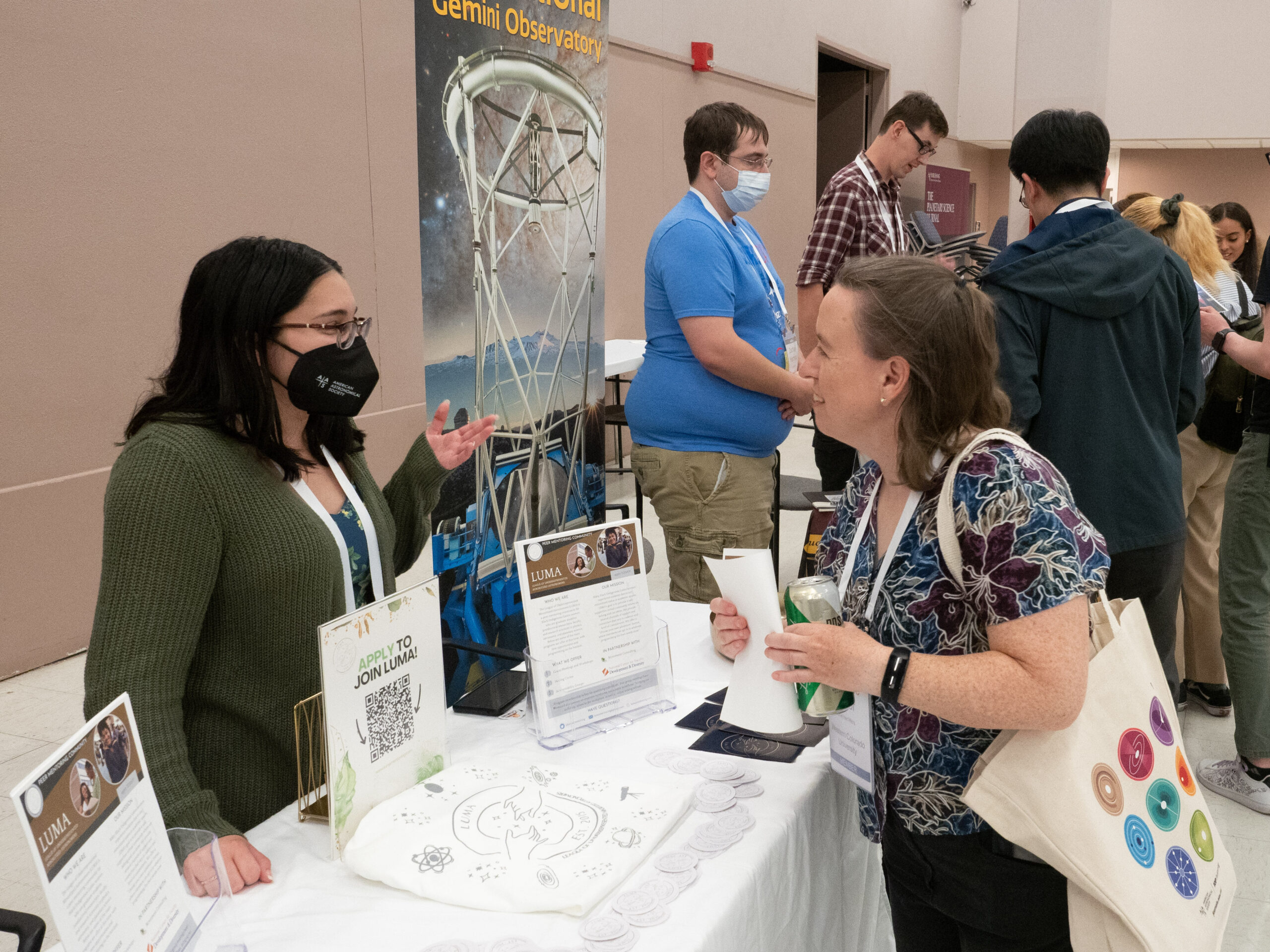
For readers who are people of color attending AAS 243 and are interested in the Rainbow Village, how can they get involved or learn more?
For all those interested, they can look out for our Rainbow Village Astrobites article series, as well as sign up if you’re interested in volunteering to stay connected and support people of color throughout AAS and beyond with this google form. If you’re a person of color presenting at AAS, please share your presentation details with us through this google form so we can celebrate you!
Astrobite edited by Katya Gozman.
Featured image credit: LUMA.

